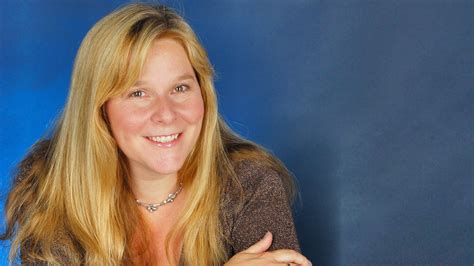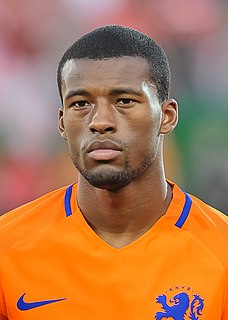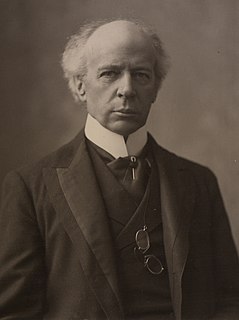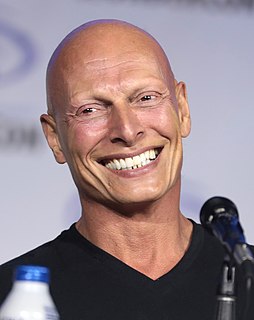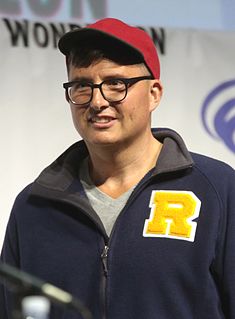A Quote by Robin Furth
Originally, I broke the story [The Gunslinger Born] into eight comic books, but when the editors at Marvel thought we should make it more compact, I managed to cut back to seven.
Quote Topics
Related Quotes
At seven, I played centre-back. When you're so young, though, it's more to enjoy the training and to get a feel for the game. It's not heavy on tactics of a position. We were playing on a half pitch, seven against seven or eight against eight, so they say you're a centre-back, but it's not like the real definition.
I suppose that, for me at least, the biggest difference betweenThe Gunslinger Born and the next two story arcs (The Long Road Home and Treachery), is that while Gunslinger Bornwas a translation of an existing novel, the next two arcs are really the stories that I've been weaving since I first started working with Steve King on the Dark Tower back in 2000/2001.
I came in with a very specific idea about what a Doctor Strange movie should be, which was rooted in the comics, and I thought it should be as weird and as visually ambitious compared to modern comic book movies as the comic was when it showed up in the '60s compared to other comic books at the time.
Comic books are just a way to show a story. Then there are the movies, and television and exhibits like this that take the stories and make them seem so realistic. In the comic book, you're just reading a story - hopefully a good, exciting story that whets your appetite for all of this stuff to come.
I was a Marvel kid, and I would have to say that Spiderman is my all-time favorite character. As I got older, my tastes developed a little bit more, and I would follow certain writers; like, I really got into Grant Morrison. From the time I was 5, I was into comic books. From the time I learned how to read, it was all about comic books.
Comic books sort of follow with the move - if people see the movie and if they're interested in the character and want to see more of the character, they start buying the comic books. So a good movie helps the sale of the comic books and the comic books help the movie and one hand washes the other. So, I don't think there's any reason to think that comics will die out.
